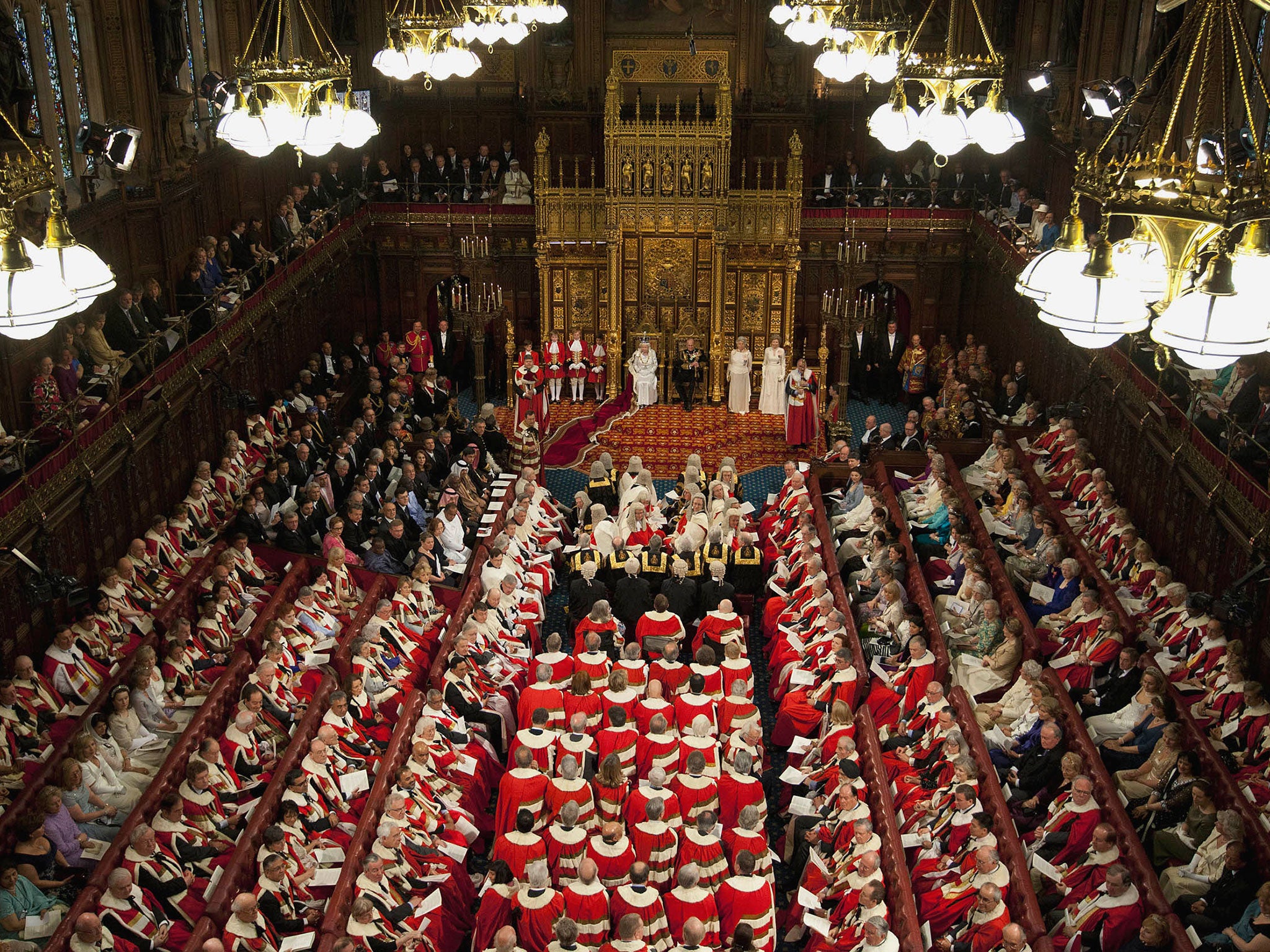ESA benefit cuts forced through by Tories on ‘black day for disabled people’
Lords ran out of options after the Speaker of the Commons attached a 'financial privilege' to the Welfare Bill

Your support helps us to tell the story
From reproductive rights to climate change to Big Tech, The Independent is on the ground when the story is developing. Whether it's investigating the financials of Elon Musk's pro-Trump PAC or producing our latest documentary, 'The A Word', which shines a light on the American women fighting for reproductive rights, we know how important it is to parse out the facts from the messaging.
At such a critical moment in US history, we need reporters on the ground. Your donation allows us to keep sending journalists to speak to both sides of the story.
The Independent is trusted by Americans across the entire political spectrum. And unlike many other quality news outlets, we choose not to lock Americans out of our reporting and analysis with paywalls. We believe quality journalism should be available to everyone, paid for by those who can afford it.
Your support makes all the difference.Peers in the House of Lords have reluctantly backed down in their battle with MPs over a cut to disabled people’s benefits after being accused of “overstepping their mark”.
The Government was twice defeated by defiant Lords over reducing Employment and Support Allowance (ESA) for people in the work-related activity group (Wrag) from £103 to £73 a week. Peers were arguing to delay the cuts pending a parliamentary report on the impact on claimants.
But Lords in the upper chamber ran out of options after the Speaker of the Commons attached a “financial privilege” to the Bill. The privilege can be used by the Commons as grounds for overruling any Lords proposal that has a cost implication.
"This is a black day for disabled people,” warned the independent crossbencher Lord Low of Dalston, during the debate on Monday evening.
He added: “The Commons have spoken decisively and we must now bow to their wishes, but we do so under protest.” Lord Low also accused the government whips of “working overtime last Wednesday night in the House of Commons, going round handing out bribes and blandishments like there was no tomorrow”.
Research by the Disability Benefits Consortium suggests the low level of benefit is already failing to meet disabled people's needs.
A survey of 500 people in the affected group found that 28 per cent of people had been unable to afford to eat while in receipt of the the benefit. Around 38 per cent of respondents said they had been unable to heat their homes and 52 per cent struggled to stay healthy.
Lord Freud, the minister of state for the DWP, said: “The Commons voted solidly to reject those amendments, and the Motion now asks this House to accept that decision. In addition, the Commons Speaker has also ruled that these changes attract financial privilege. As noble Lords have not tabled amendments to the contrary, I will make the presumption that the House is now prepared to accept the changes, albeit with great reluctance, and will not defy convention.
The eleven-time Paralympic gold medallist Lady Tanni Grey-Thompson, who last week used an emotive speech in the Lords to condemn the “ideological” cuts, expressed her “deep disappointment” with the result.
By this action, the Government have betrayed the trust of disabled people and they should not be surprised if they forfeit it for the rest of their time in office.
She said: “I and others spent a great deal of time last week working through every possibility of tabling another amendment to send this dreadful and punitive part of the Bill back to the other place. Unfortunately, because of parliamentary procedure, that was not possible. Placing financial privilege on these amendments means that the other place ultimately has its way, and it is entitled to do that—just as we were entitled and absolutely right to ask the Commons to think again.
“As a Chamber appointed because of our expertise in areas such as this, we know and understand the impact this Bill will have, even if no formal impact assessment was carried out. I apologise to the people affected by this Bill that, at this point, we could not do any more. This may be the end of the legislative process, but it is the start of the negative impact the Bill will have on thousands of people’s lives.
"By this action, the Government have betrayed the trust of disabled people and they should not be surprised if they forfeit it for the rest of their time in office."
Priti Patel, the Employment Minister, last week criticised peers in the upper chamber for “overstepping their mark” and insisted the Government must press ahead with the plan.
Conservative ministers are arguing that cutting the ESA entitlement from April 2017 for new claimants in the work-related activity group (Wrag) would provide and incentive for them to return to work. Peers, however, claim there is no evidence of this while campaigners insist it will push benefit claimants into further poverty.
The Welfare Reform and Work Bill has been at the centre of a parliamentary tussle between MPs and peers, with some Tory MPs also expressing misgivings about the ESA cut, which will apply to new claimants next year.
“If we don’t get this right we will damage not just the employment prospects and wellbeing of these vulnerable claimants, but also our reputation and our trust among the electorate,” said Conservative MP Heidi Allen.
Join our commenting forum
Join thought-provoking conversations, follow other Independent readers and see their replies
Comments